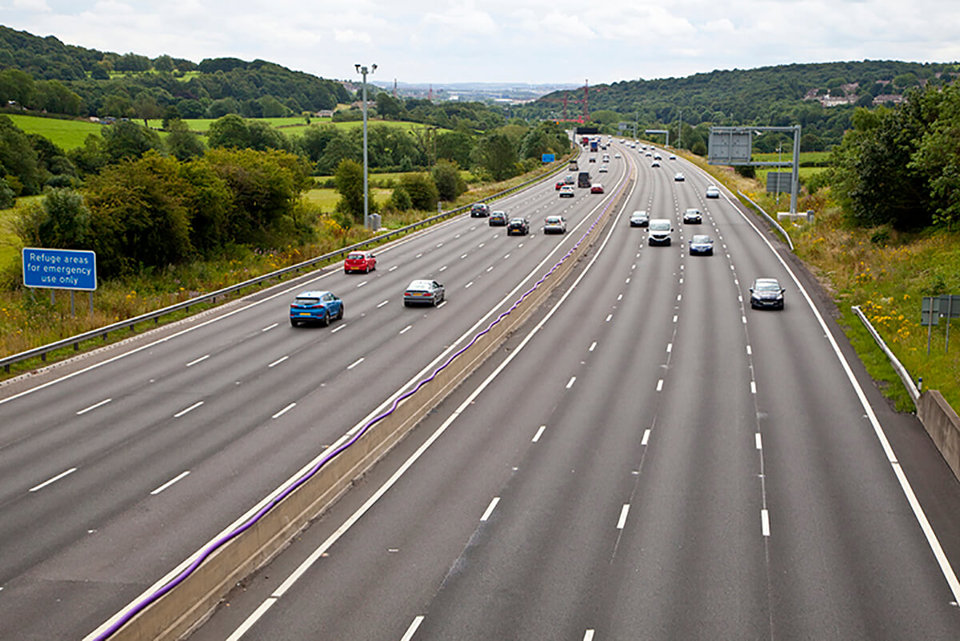A survey of motorists in Britain, France, Germany and Spain conducted by Mix Telematics has revealed that 63% of all drivers admit to speeding while driving for work, with more than a third (34%) admitting they speed every week.
When asked why they do it, the most common responses were keeping up with traffic flow (53%) and pressure to meet schedules (37%).
In terms of where drivers speed, more than 40% of all drivers who admit to speeding while driving for work said they do so on motorways, main roads and in urban areas.
There were, however, some significant differences among these drivers, with drivers in Britain saying they are most likely to speed on motorways (63%), drivers in Germany on main inter-urban roads and drivers in France and Spain reporting that the likelihood of them speeding is approximately equal regardless of the type of road upon which they are travelling.
Overall, drivers surveyed believe there’s only a small chance of serious consequences for exceeding the speed limit. Should there be a consequence, drivers reported that being stopped by the police is the most likely.
Across the four countries, causing harm to others and causing harm to myself were rated at just 14% and 13% respectively, slightly behind 'losing my driving licence', which scored 16%.
In terms of drivers being fined for exceeding the speed limit over the past 12 months, truck drivers led the way with 17% receiving penalties, compared to 14% of van drivers, 12% of bus and coach drivers and 9% of passenger vehicle drivers. In most cases, the driver was far more likely to pay the fine than his or her employer, the only exception being bus and coach drivers where the split was 50/50.
In terms of the country in which speeding fines are most commonly handed out, Britain leads the way, narrowly trumping Spain, France and Germany, in that order.
Of the survey respondents that admitted to speeding while driving for work, a significant proportion of both men and women appeared to be unaware of the dangers of speeding; although, almost twice as many men as women (29% vs 17%) stated that they believe they can drive safely while speeding.
Analysed by country, only 20% of all drivers in Germany stated that they do not speed while driving for work. Drivers in Spain claim to be the most well-behaved, with 40% saying they never exceed the speed limit. Drivers in Britain came a close second, with 39% saying they never speed, while French drivers recorded a score of 34% in this respect.
"The knowledge that two-thirds of drivers in Britain, France, Germany and Spain routinely speed while going about their employer's business is a concern to companies in each of these countries," said Steve Coffin, marketing and operations director for Mix Telematics (Europe).
"Our survey also found that more than three quarters of all drivers – 77% – receive no training whatsoever related to speeding while driving for work.
"Of the 23% of drivers who have received training, the majority were truck or bus and coach drivers. Within this group, 82% stated that their training had a positive influence on their driving behaviour.
A majority reported that they are now more conscious of their speed as well as their acceleration, braking and gear-changing, resulting in a smoother driving experience. In addition, 33% reported avoidance of excessive idling.


















Dave Holladay - 31/03/2014 00:52
The other big detail not covered here is using the footway with a carriage (ie a motor vehicle) the casualty figures suggest that this is a very major issue for motor vehicles, but by contrast averaging less than 1 death per year for cyclists. Yet with 54% of UK drivers admitting that they drive on a footway, prosecutions and FPN's are disportionately handed out to cyclists. What really amazed me though was that, on an HGV driver forum, some professional drivers actually believed that they could drive on, and park on, footways. Here is a group who take an enhanced test for vocational driving, who seem completely ignorant of the law which clearly bans footway use by vehicles over 7.5T GVW in addition to the basic s.72 Highways Act 1835 (a fine piece of traffic legislation, which was determined for cycles in 1888 and for motor cars in 1903, and can in the future apply to any vehicle which may be devised. Now all we need to do is align the enforcement of the law in driving a carriage on a footway, with all other traffic offences, where a photograph of the offending vehicle places the guilt for the offence with the vehicle keeper, unless the keeper reveals the driver's details